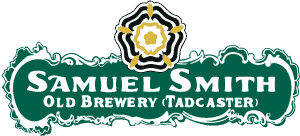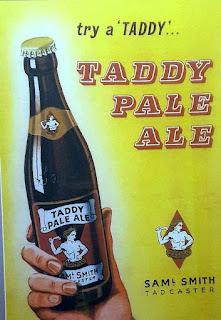There has been a lot written recently, and in the near past, about Sam Smiths, or more particularly Humphrey Smith. Most of this stuff is speculative, as of course Humph, like the royal family, never apologises and never explains. That doesn't help his case at all, though, as apart from being nearly as rich as the Windsors - the Smiths own a lot of land in Yorkshire and elsewhere - as well as an empire of up to 350 pubs throughout the UK, almost all being freehold. In fact, the number may be more, as I don't believe that anyone in the public domain actually knows the total
But all is not well. I was told, recently, that no fewer than 120 Sam Smith's pubs are closed through lack of people to run them. (You can often find them listed in trade adverts for managers) This is an astonishing number given that all of them are managed houses, and while they attract a smallish salary, not much above minimum wage, but they do have heating, lighting and rent thrown in on top. This is not an entirely unattractive package in these dodgy times, so why is there a problem in finding the right people to run them? More of that soon.
Let's take a look at what else we know. Sams' pubs - themselves largely unbranded - sell nothing that isn't made or commissioned by them. All beers, wines and spirits, crisps, nuts and pork scratchings, as well as soft drinks are Smith brand, even if the names are made up by them, or, as in the case of Walker and Scott spirits, owned by them. These and Scintilla Soft drinks are high quality products. Quality of product is rarely an issue with the brewery, and the lack of brands is something that could actually be admired from one point of view. Make, not buy, still has some adherents.
Sams also brew an astonishing range of mostly keg beers - the sole cask beer being Old Brewery Bitter - and to continue with the idiosyncrasy - this is sold only in wooden casks, with strict turnover criteria deciding whether it can be obtained by a particular pub. Until recently the draught beers were sold at a very cheap price, but this has changed, though price increases elsewhere may well return Sams to its previous pole position. As an aside, its range of bottled beers has always commanded a premium in the pubs. There is a long-standing and large export trade in bottles, mainly to the US.
The Smith empire is essentially
split in two, with the Southern part - maybe it is just London - who
knows where the line might be drawn? - being run by Humphrey's son Sam,
and the Northern and bigger chunk being run by Humphrey himself on a somewhat idiosyncratic basis, where his word is law and some would allege, employment law is regarded as advisory (Smiths lose a lot of tribunal and legal cases).
In the North, pubs appear to be run by diktat. When you enter one, prominent notices on the wall advise you not to use electronic devices. Mobile phones are banned and swearing is not permitted. There are no televisions, fruit machines or jukeboxes. No piped music is present and conversation is, again, by notices on the bar, "encouraged". Until very recently you could only pay by cash, but this rule has been rescinded and even the use of phones is allowed briefly for this sole purpose. In London, particularly, use of contactless card payment has been allowed for years. Given the nature of the client base there, it would have been suicidal for the business to do otherwise, but technically at least, the other rules pertain, though perhaps there they apply more in the breach than the observance.
Both in the North and South, Sams run clean and comfortable pubs. They often spend a lot of money reinstating pubs to their former designed layout. They are warm, have a great range of things to drink and all you have to do is observe a few reasonable rules about not effing and jeffing and not make phone conversations inside.
So, what's not to like? Well, there seems to be a downside. Humphrey has been known to descend from Tadcaster and close pubs, immediately with customers still inside, and sack managers on the spot for allowing any minor breach of the rules. These cases have been documented in the press and include alleged shortfall in stock among other things. I also believe from web sources that he himself has been the victim of irregular behaviour from his managers and with his low tolerance of misdemeanour, this may go some way to explaining vacancies, as does a culture of fear. As a former professional manager, I know that is a nil sum game. If you want to succeed, you really do need buy-in from those that make it all work for you. That means being fair and collaborative.
In summary, in aiming to turn the clock back to the non-existent halcyon days of pub going, there is a balance to be struck. Very few pubs back in the day would meet Humphrey's somewhat rose-tinted vision. Most were pretty rum places indeed, and conversations were peppered with epithets and worse. Back in those days, the managers and tenants who ran your pubs for you were also valued in a very different way to nowadays. As my good friend the Pub Curmudgeon remarks here, there is much to admire in Sam Smith's pubs. The trick, surely, would be to keep high standards, without unreasonably blaming those who are forced to apply them if customers transgress against them.
It would also help to be more accommodating to silent use of electronic devices, as would more than a nod to changing times. In this respect, as in other areas, any reasonable person would likely agree that a tweak here and there would benefit everyone without throwing Humph's baby out with the bathwater.
I commend to you other pieces written by the Pub Curmudgeon and Glynn Davis. These will help round off the picture for you.
This article was prompted by the news that one of the many closed Sam Smith's pubs in our area was said to be re-opening. I'll check it out by way of resuming my pieces on Sam Smiths pubs soon. Here's a favourite example.






























